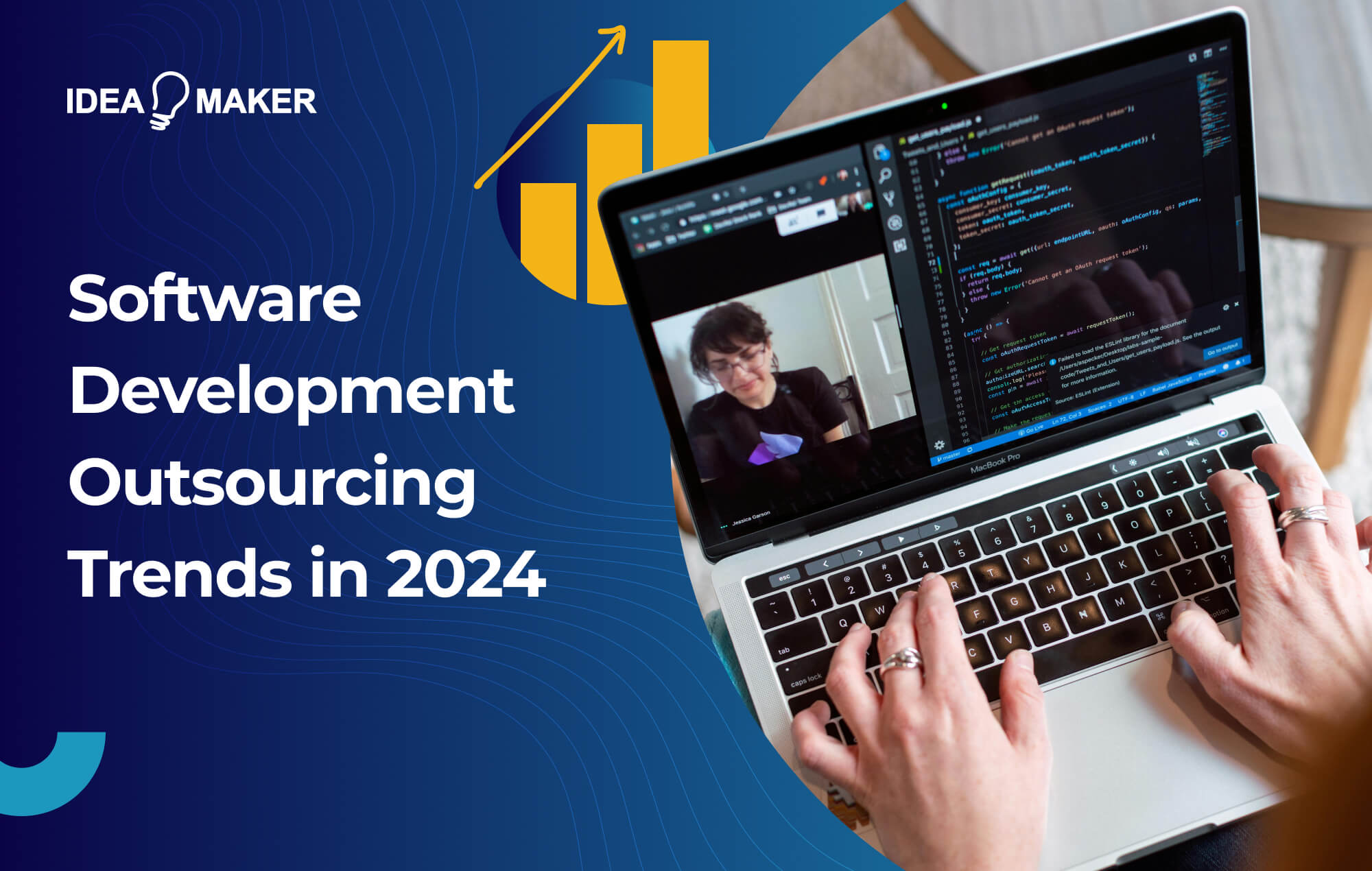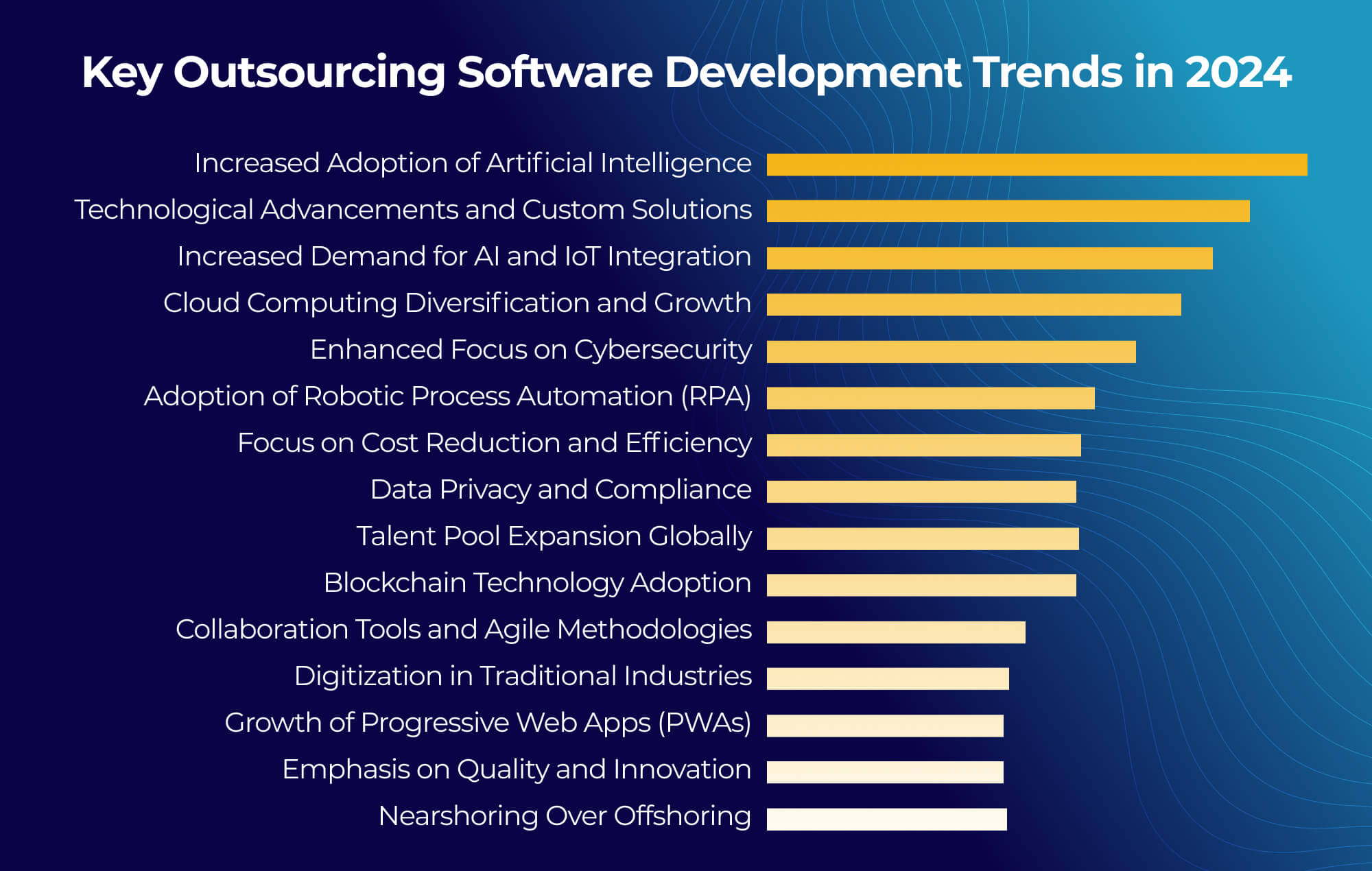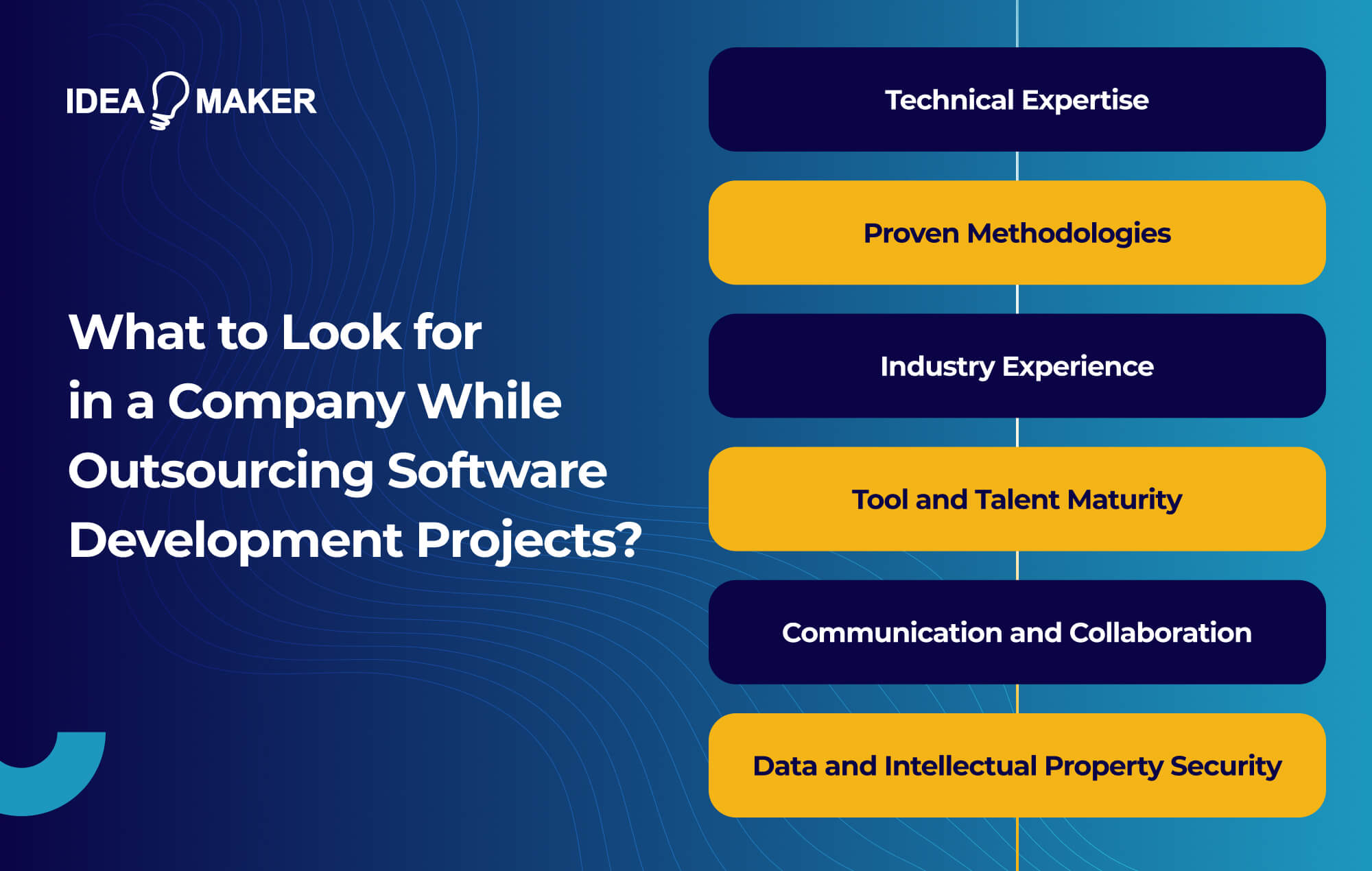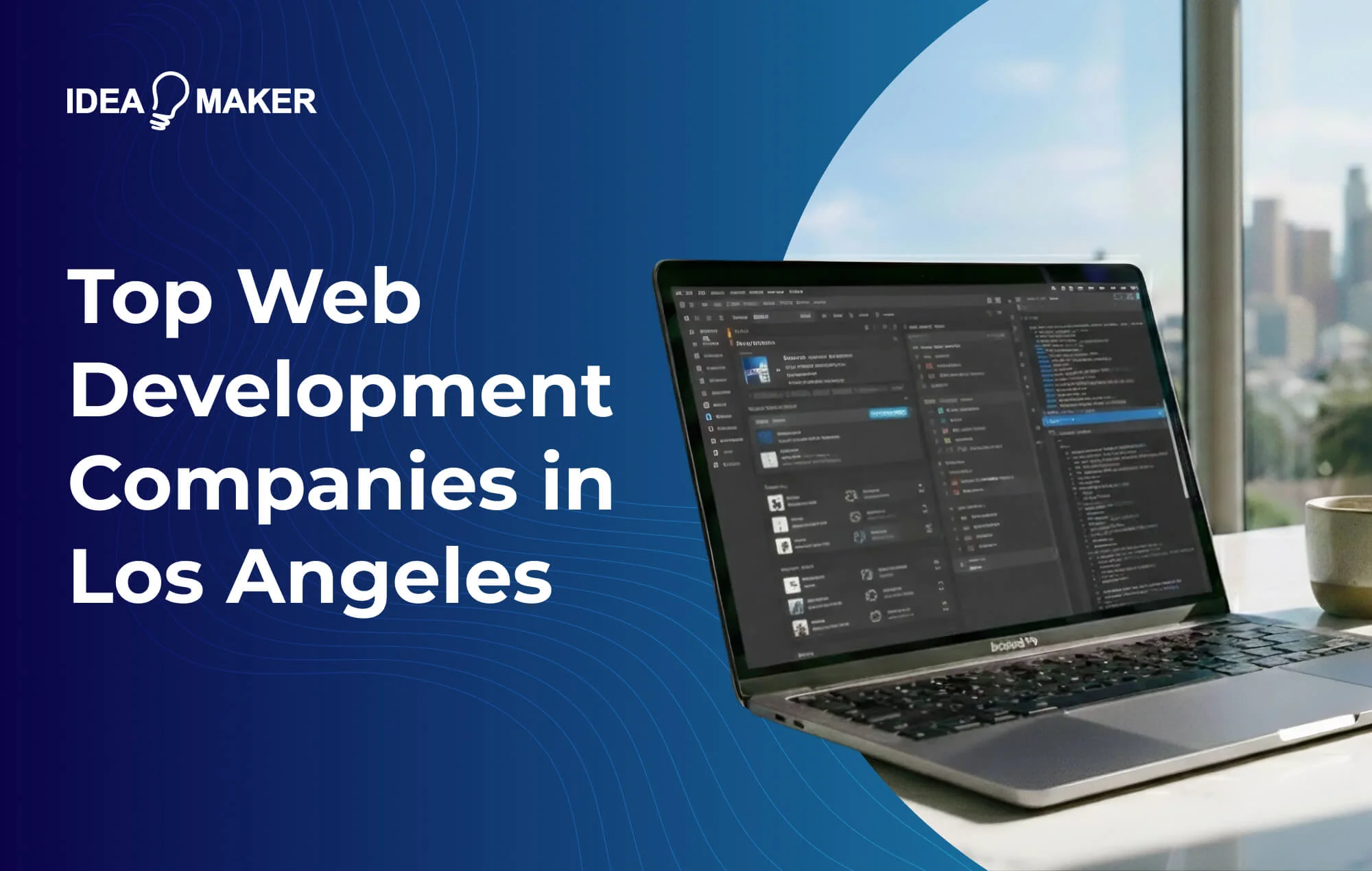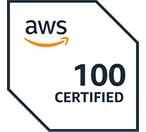The global economy is increasingly driven by software innovation. As software eats the world, companies are scrambling to develop and launch digital products and services to gain a competitive edge. However, finding qualified developers for an in-house team can be challenging and costly. This is where outsourcing comes in.
Offering a variety of benefits, from cost savings to access to specialized skills, software development outsourcing has been on the rise for decades. Although technological shifts, business objectives, and global economic conditions have disrupted accepted wisdom on the practice, outsourcing software development is likely here to stay.
In fact, new trends suggest outsourcing software projects will substantially increase in the coming years. This is thanks to powerful technologies, such as artificial intelligence, that are transforming the industry and boosting software outsourcing demand.
This article explores the key drivers catalyzing growth in software development outsourcing, ensuring you have a solid understanding of upcoming outsourcing trajectories. We’ll also highlight essential criteria for choosing a software development partner amidst shifting trends. With this information, your business will be well poised for outsourcing success.
Table of Contents
Why Software Development Outsourcing Will Increase in 2024 and Beyond
The technology landscape in 2024 and beyond will be defined by certain mega-trends that are expected to drive increased adoption of software development outsourcing across industries. But before diving into these trends, let’s briefly discuss the primary factors currently affecting software outsourcing demand.
- Disruptive Technologies: With the emergence of artificial intelligence, machine learning, robotic process automation, and blockchain, finding developers with the proper skills for your project can be difficult. Outsourced talent pools, however, allow access to niche technical competencies at optimized costs.
- Digital Transformation: Digital transformation picked up speed during the coronavirus pandemic, causing enterprises across industries to adopt advanced initiatives such as cloud migration, remote working, online customer engagement, and automation. The majority of consumers now expect these digital services, further fueling software outsourcing for businesses looking to unlock success and innovation.
- Remote Work: Thanks to the pandemic, the distributed workforce and gig economy are also on the rise, enabling access to specialized talent across geographies. Some outsourcing providers even offer on-demand expertise through hybrid engagement models like blended shore and onsite-offshore.
- Long-Term Growth: Businesses in various sectors are turning to software development outsourcing to ensure operational efficiency, IT cost optimization, and strategic innovation. This is because outsourcing your project allows you to better focus on core business objectives, often leading to increased productivity and efficiency.
Key Outsourcing Software Development Trends in 2024
Now that you understand the factors contributing to the influx in outsourcing, let’s take a look at the key software development outsourcing trends that will likely gain momentum over the next few years.
Increased Adoption of Artificial Intelligence
Artificial intelligence has taken the world by storm, offering businesses across industries crucial advantages, including enhanced customer satisfaction and improved productivity. Throughout this year, the technology is expected to further expand its reach as more companies realize its ability to streamline operations and drive growth.
From conversational interfaces to predictive analytics, AI’s powerful capabilities are also transforming software solutions and increasing AI adoption in outsourced development. Additionally, advancements in AI chips, neural networks, and quantum computing are making AI integration more affordable and effective.
As a result, many outsourcers are building strong AI competencies through research partnerships, robust talent pipelines, and IP creation to deliver optimized solutions with valuable features like sentiment analysis and anomaly detection. This means that, when outsourcing your software project, it’s vital to select a development team with proven AI expertise to ensure long-term innovation and value.
Increased Demand for AI and IoT Integration
With the rise of smart devices, AI has intersected with the Internet of Things, creating new paradigms for software-led intelligence and increasing its overall demand. In fact, by 2025, over 75.44 billion IoT devices are expected to permeate homes, industries, utilities, and cities across the world.
Unlocking value from the data generated by this hyperconnected ecosystem, however, requires AI-powered systems. As more enterprises realize the potential of IoT and AI convergence in improving efficiency, agility, and user engagement, outsourcing demand in this space will likely see significant growth.
To accommodate this trend, outsourcing partners are now building integrated frameworks using core technologies like sensors, cloud, analytics, and machine learning. Many are also leveraging their expertise in platform engineering and data science to enable rapid prototype creation, minimum viable product development, and deployment for IoT systems.
Blockchain Technology Adoption
Blockchain technology has enhanced the process of sharing critical business information, ensuring a transparent and secure record-keeping system. As a result, blockchain adoption is accelerating across sectors, especially banking, logistics, healthcare, and media.
But building blockchain platforms aligned to security, scalability and compliance requires specialized skills and expertise. For this reason, outsourcing partners are developing Centers of Excellence around blockchain and its integration with IoT, AI, and the cloud.
This opens the door for valuable use cases like supply chain tracking, payments, and smart contracts. In other words, choosing outsourcers with blockchain specialization will provide your business with a competitive edge in 2024.
Digitization in Traditional Industries
Customer Experience innovations in sectors like manufacturing, natural resources, and transportation have enormous potential through technologies like AI, virtual reality, and Industrial IoT. As these industries increase IT investments, outsourcing partnerships can enable their digital transformation.
From building connected shopfloors to automated safety surveillance, outsourcers are helping enterprises reimagine traditional processes. Their digital solutions also assist in core objectives like predictive maintenance, real-time supply chain visibility, and remote expert collaboration.
With legacy industries gradually digitizing their operations, strategic outsourcing alignment will be key to staying ahead of the curve.
Cloud Computing Diversification and Growth
In 2024, cloud computing is becoming more diverse than ever before. Enterprises are now moving beyond infrastructure-as-a-service (IaaS) and platform-as-a-service (PaaS) to explore niche cloud platforms like serverless computing, edge computing, and private 5G.
Consequently, outsourcing partners are building specialized practices across cloud categories to consult, migrate, manage, and optimize client workloads. Their Centers of Excellence are also placing a heavy focus on containers and cloud-native development.
Your business can greatly benefit from these outsourcer capabilities as usage diversifies from virtual machines to microservices and data lakes to warehouses. Partners can also help govern complex multi-cloud or hybrid technology environments. This means that, by aligning with outsourcing vendors at the forefront of cloud tooling, your business will be poised to keep pace with infrastructure advancements.
Enhanced Focus on Cybersecurity
As digital footprint and risks increase, outsourcers are prioritizing cybersecurity investments with chief information security officer (CISO) leadership, threat monitoring teams, and policies aligned with the National Institute of Standards and Technology (NIST). Their offerings now encompass managed detection and response (MDR), governance consulting, data loss prevention, cloud security posture management, and more.
For your business, these skills translate to solutions hardened as per protocols like the Confidentiality, Integrity, and Availability (CIA) triad from the design stage itself. Outsourcing partners further assist in red team testing, cyber forensics, and 24/7 threat vigilance. As a result, choosing software outsourcing development firms aligned to protocols like ISO 27001 helps mitigate risks as software leverages next-gen platforms.
Adoption of Robotic Process Automation (RPA)
The adoption of robotic process automation (RPA) is growing exponentially, with over 90% of large organizations implementing the technology in 2022. This is thanks to its massive potential to automate high-volume, repetitive tasks with better accuracy and less resource dependency. Most outsourcers now possess deep RPA expertise across tools and use cases.
For example, by integrating RPA with AI and analytics, outsourcing partners are enabling intelligent process automation flows. Based on process maturity assessments, they identify automation opportunities to free up resources and enhance CX. This allows clients to scale RPA with minimal disruption. Such outsourcing partnerships will be key to driving enterprise automation in 2024 and beyond.
Growth of Progressive Web Apps (PWAs)
Progressive web apps (PWAs) are poised to impact software development in 2024. With their app-like engagement and the web’s omnichannel access, PWAs are the best of both worlds for enterprises and consumers alike. Because of these benefits, outsourcers are leveraging their expertise in the latest web capabilities, including service workers, web assembly, and push notifications, to build high-performance PWAs.
They also optimize for metrics like speed, responsiveness, and frictionless re-engagement across devices. As Google prioritizes PWAs on app stores, choosing outsourcing partners ahead of the curve enables you to unlock your software’s full potential.
Focus on Cost Reduction and Efficiency
Post-pandemic market uncertainties are also set to amplify the cost-efficiency imperative for modern enterprises. Outsourcers are now incorporating benchmarks around project timelines, productivity metrics, and utilization levels for improved ROI.
Additionally, transparent governance models and on-demand flexibility assist in cost optimization, while no-code platforms and RPA help ensure efficiency. Choosing partners aligned to cost governance and dedicated to delivering quality will enable your business to balance both crucial aspects.
Nearshoring Over Offshoring
Geopolitical developments, de-globalization trends, and latent protectionism are making nearshoring more appealing for Western organizations. Unlike offshoring, nearshoring refers to outsourcing your software project to a development team in a geographically closer region.
For clients, nearshoring translates to many advantages, including overlapping time zones, lower travel costs, and better coordination. To tap both cost and collaboration benefits, identifying outsourcing partners with global delivery models is recommended. The talent shortage is also likely to continue for the foreseeable future, so your business should aim to find talent in nearshore markets.
Emphasis on Quality and Innovation
The bar for software quality and differentiation is rising due to the amplification of enterprise IT. In fact, the majority of users expect consumer-grade experiences from enterprise solutions. Outsourcers are addressing this by leveraging iterative approaches like design thinking, building CX Centers of Excellence, and expanding usability testing labs.
Similarly, outsourcers are now investing in quality certifications like CMMI and ISO 9001 while prioritizing innovation programs, hackathons, and partnerships with startups and academic institutions. Some also have corporate venture capital arms to fund emerging technology entrepreneurs.
This creates a win-win for your business, enabling access to the latest ideas and methodologies while ensuring proven best practices for quality. Consequently, selecting outsourcing partners who balance both components will deliver the best results.
Collaboration Tools and Agile Methodologies
In 2024, distributed teams and work environments have become the norm rather than the exception. This has led to the rise of workspace tools, virtual whiteboarding apps, and persistent messaging platforms that outsourcers can leverage to ensure effective collaboration.
Agile software development methodologies also continue to mature, with frameworks like SAFe and LeSS gaining more adoption. Additionally, outsourcing partners will strive to keep you updated on new techniques for faster releases, real-time feedback, and organized distributed development. Together, these approaches translate to streamlined engagement models, despite geographic barriers and team dispersion.
Data Privacy and Compliance
With growing data protection regulations like the General Data Protection Regulation (GDPR) and California Consumer Privacy Act (CCPA), outsourcers are enhancing security controls, access management protocols, and breach disclosure processes. Some partners even offer proprietary solutions around data discovery, classification, and governance, catering to regional statutory needs.
Investments in compliance certifications, such asISO 27001 and 27701 for information security management and PCI DSS for payment systems, also showcase preparedness.
For your business, these capabilities ensure development rigor as per the latest data protection needs across markets while minimizing breach risks.
Talent Pool Expansion Globally
The global talent shortage, especially in emerging technologies, is a key catalyst for outsourcing growth. Partners are expanding recruitment reach, leveraging gig economy platforms, and exploring alternate talent models like crowdsourcing. Retention focus has also been amplified to control attrition, from competitive compensation to upskilling programs, mental health support, and diversity, equity, and inclusion (DEI) initiatives.
Globally, specialized technology hubs provide distinct access advantages. For instance, countries like India, China, and Israel have a strong talent pipeline in math, science, and engineering. Many partners are tapping hubs across Eastern Europe, Latin America, and Southeast Asia, as well.
This talent pool expansion enables your business to utilize scalable, multi-disciplinary teams for your software project without the pains of recruiting niche skills yourself. It also provides access to fresh ideas and perspectives.
Technological Advancements and Custom Solutions
The blurring technology landscape requires more composable solutions built on open standards rather than monolithic ones. Outsourcing partners are adopting cloud-native, API-first, and platform-based approaches aligned with this.
Investments in research and development labs, MVP studios, and innovation centers allow rapid proof-of-concept testing before committing resources for full-scale builds. Partners also run targeted accelerators and events like hackathons across emerging tech domains.
These mechanisms ultimately provide a runway to transform your solution as per evolving user expectations and business scenarios with minimized risk. In other words, by facilitating experimentation, your business can achieve a competitive edge.
What to Look for in a Company While Outsourcing Software Development Projects?
With outsourcing on the rise, selecting the right software development team is key to reaping benefits. As a result, there are many crucial considerations you should keep in mind during the evaluation process.
Technical Expertise
The developers you choose to partner with must have capabilities around the latest technologies, including AI/ML, blockchain, and cloud architectures, aligned to long-term roadmaps. Knowledge breadth to support end-to-end life cycles, from architecture to deployment, is also vital.
Proven Methodologies
When choosing an outsourcing team, evaluating their expertise in proven development methodologies is imperative. This is because mature software development, project management, and quality assurance processes like Agile and ISO benchmarks generally translate to disciplined execution.
Industry Experience
The outsourcers you choose should have ample experience in your industry. Consequently, it’s important to look for player-specific solutions, use case repositories, and clientele belonging to the vertical or domain. Pre-built accelerators also showcase contextual understanding for faster time to value.
Tool and Talent Maturity
Another essential consideration involves the team’s overall development maturity. For example, existing partnership levels with platform pioneers like Amazon Web Services (AWS) and Google Cloud exhibit tooling preparedness. Talent strength, retention, and training processes should also align with your solution’s future needs.
Communication and Collaboration
Effective communication is key for a successful outsourcing project. Despite geographic dispersion, partners should facilitate seamless interaction through project clarity, shared online workspaces, and persistent connectivity. Cultural alignment is also important for optimal collaboration.
Data and Intellectual Property Security
As software development involves shared infrastructure, vendor security policies, access controls, and protocols must address evolving cyber risks and data regulations. Evaluating these parameters right at the request for proposal (RFP) stage helps select the right outsourcing ally for long-term technology success.
Final Thoughts on Software Development Outsourcing Trends
Outsourcing growth in software and IT services is poised to expand tremendously over the next decade. Driven by emerging technologies, cost optimizations, and process efficiencies, companies are aligning outsourcing as a strategic lever for innovation-led transformation.
However, these partnerships must mature from simplistic cost plays into integrated business alliances to unlock true potential. As a result, it’s essential to work with your outsourcing team to develop long-term technology roadmaps, co-innovating for mutual success and enabling each other’s specializations, to accelerate collective progress.
At Idea Maker, our experts are committed to ensuring a collaborative and transparent partnership that will help you drive innovation through software development. So, if you’re ready to elevate your business to the next level, reach out to Idea Maker to schedule a free consultation today.
